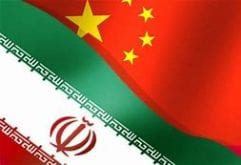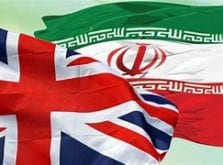Al-Monitor – After the recent attempt by the United Arab Emirates to reduce tensions with Tehran, Iranian President Hassan Rouhani sent a letter proposing a peace plan to heads of the Gulf Cooperation Council (Saudi Arabia, Kuwait, Qatar, the UAE, Oman and Bahrain) and Iraq.
Since the 1979 Revolution, Iran and its Arab neighbors have never been able to forge a deep and sustainably friendly relationship. In fact, they have been trying to maintain minimalist diplomatic ties with each other, viewing the status quo as the most effective mode of relations.
Over the past few years, however, the degree of hostilities between Iran and Saudi Arabia, the UAE and Bahrain has reached unprecedented levels, to the extent that observers saw prospects of military confrontation in the region.
The reasons behind the increasing tensions are worth discussing. After the Saudis waged war in Yemen starting in 2015, the UAE and Bahrain became parties to the conflict on the Saudi side, whereas Iran supported the Houthis. In 2016, Saudi authorities executed Sheikh Nimr al-Nimr — a popular Shiite cleric critical of the Saudi government — which was followed by an attack on the Saudi Embassy in Tehran by an angry mob. As a result of the attack, Saudi Arabia and Bahrain cut diplomatic ties with Iran, while the UAE reduced its diplomatic relationship. Last but not least, President Donald Trump’s policy of maximum pressure against Iran was supported by US allies in the region, namely, Saudi Arabia, the UAE, Bahrain and Israel.ALSO READCIVIL SOCIETYReligious authorities give Iraqi government new lifeline
While rivalry between Iran and Saudi Arabia has taken hold all over the region, including in Yemen, Lebanon, Iraq and Syria, news about improvement of diplomatic ties between the Arab states of the Persian Gulf and Israel shook Iran. Ongoing Israeli attacks on Syria and Iraq — including on Iran’s bases in these two countries — and the decision by the Trump administration to declare Jerusalem the capital of Israel and recognize the Golan Heights as part of Israel could not have come at a worse time for a Middle East experiencing mounting tensions.
With the new wave of turmoil in Beirut and Baghdad, where determined demonstrators have occupied streets for many weeks calling for the removal of the entire political class, the Middle East is desperate for a serious reconsideration of policies by all parties involved in the region. While the Israeli-Palestinian conflict remains the most vital point of contention in the Middle East, resolving rivalries among the countries around the Persian Gulf, especially Iran and Saudi Arabia, would have a substantial impact on resolving crises in Yemen, Iraq, Syria and Lebanon. But for such efforts and a reshaping of policies to be effective in the Persian Gulf, attention needs to be paid to the following points.
- First, for the decades following the 1979 Revolution, the countries of the Gulf Cooperation Council (GCC) have been allied against Iran, which has added much to the ethnically belligerent dichotomy of Arab vs. Persian. Over the past few years, tensions between the neighboring Arab countries also increased dramatically. Greater tensions began when Saddam Hussein’s regime in Iraq invaded Kuwait in 1990; more recently, a high point in hostilities between GCC countries took place when Saudi Arabia, the UAE and Bahrain cut diplomatic ties with Qatar in 2017. Thus, hostilities in the region are not just limited to Arabs vs. Persians, but also Arabs vs. Arabs. Hence the old formula to ensure peace, security, and stability is obsolete and we need a new one.
- The second point comes as a result of the time and energy I have spent in recent years studying — in dialogue with experts of the Middle East and North Africa — both the contemporary and past history of the Arab world and its relations with Iran. It has been obvious to me that there are three main varieties of “fear of hegemony” among the smaller states in the Middle East, namely, the UAE, Qatar, Oman, Bahrain and Kuwait. The “blatant fear” is about Iranian hegemony. The “hazy fear” is about Iraqi hegemony. And the “subtle fear” is about Saudi hegemony and dominance in the region. The new model for sustainable peace and security should leave no place for anyone’s hegemony. I call this the “zero dominance and hegemony” model.
- Third, all members of the GCC along with Iran and Iraq have complaints about the lack of respect for their sovereignty, interference in their domestic affairs and the tendency for sectarian policies to be bolstered. Therefore, the foundations of the new model for sustainable peace and security should be based on seven factors. These are non-interference; respect for national sovereignty; mutual respect; commitment to abandon sectarian and pan-nationalist policies; commitment maintaining the geographic status quo of the region; commitment to secure mutual interests among states; and commitment to collective security.
While Iran and its neighbors have both contradictory and opposing interests, they also have vital mutual interests. In fact, they share more common interests than contradictory ones. Hence, the neighboring countries must be willing to invest more on common interests rather than on those that are contradictory.
Coexistence and cooperation between the GCC, Iraq and Iran would lead to fundamental changes in the relations that Sunni Muslim communities have with their Shiite counterparts in the world of Islam. It would lead to more solidarity and brotherhood, which would then lead to better prospects of security, stability and economic development on a global scale.
In 1987, under UN Security Council Resolution 598 on the Iran-Iraq cease-fire, the council asked the secretary-general to examine measures to enhance the security and stability of the Persian Gulf in consultation with Iran, Iraq and other states of the region. This was a key task for the secretary-general, but unfortunately no efforts were made to carry out this essential mandate.
Sustainable peace and security in the Persian Gulf require a regional cooperation system similar to the Organization for Security and Co-operation in Europe. Such a system would include the six members of the GCC plus Iran and Iraq to deal with common security concerns, including terrorism, extremism, sectarianism, organized crime, asymmetric threats/warfare and drug trafficking.
This regional cooperation system should take responsibility to guarantee safe maritime passage of energy exports through the narrow Strait of Hormuz and security for a quarter of the world’s international energy exports and production with stability in pricing of the region’s oil and gas resources. The member states could establish a task force to deal with regional crises such as in Yemen, Syria, Iraq and Afghanistan through multilateral diplomacy and cooperation with influential foreign and regional players such as the United States, the European Union, China, Russia, Turkey, Egypt and the United Nations.
With a United States willing to reduce its presence in the region, such a regional cooperation system could facilitate a gradual withdrawal of US and other foreign military forces from the region by taking responsibility for security in the Persian Gulf region.
The time has come for a new and innovative model for peace in the Persian Gulf. Oman and Kuwait have already made good efforts toward achieving friendly relations and now the role of the UAE could be definitive. Some sources have confirmed that Tehran has received a positive response from Saudi Arabia and Bahrain to Rouhani’s letter on a peace plan with neighbors. In all of this, the UN Security Council must play a more robust role to ensure that security and peace are achieved in the region.Found in:DEFENSE/SECURITY COOPERATION, YEMEN WAR, GCC RELATIONS, IRAN-US TENSIONS, IRAN REVOLUTION
Seyed Hossein Mousavian is a Middle East security and nuclear policy specialist at Princeton University and a former spokesman for Iran’s nuclear negotiators. He is the author of “The Iranian Nuclear Crisis: A Memoir” (2012) and “Iran and the United States: An Insider’s View on the Failed Past and the Road to Peace” (2014).
 Shabtabnews In this dark night, I have lost my way – Arise from a corner, oh you the star of guidance.
Shabtabnews In this dark night, I have lost my way – Arise from a corner, oh you the star of guidance.


